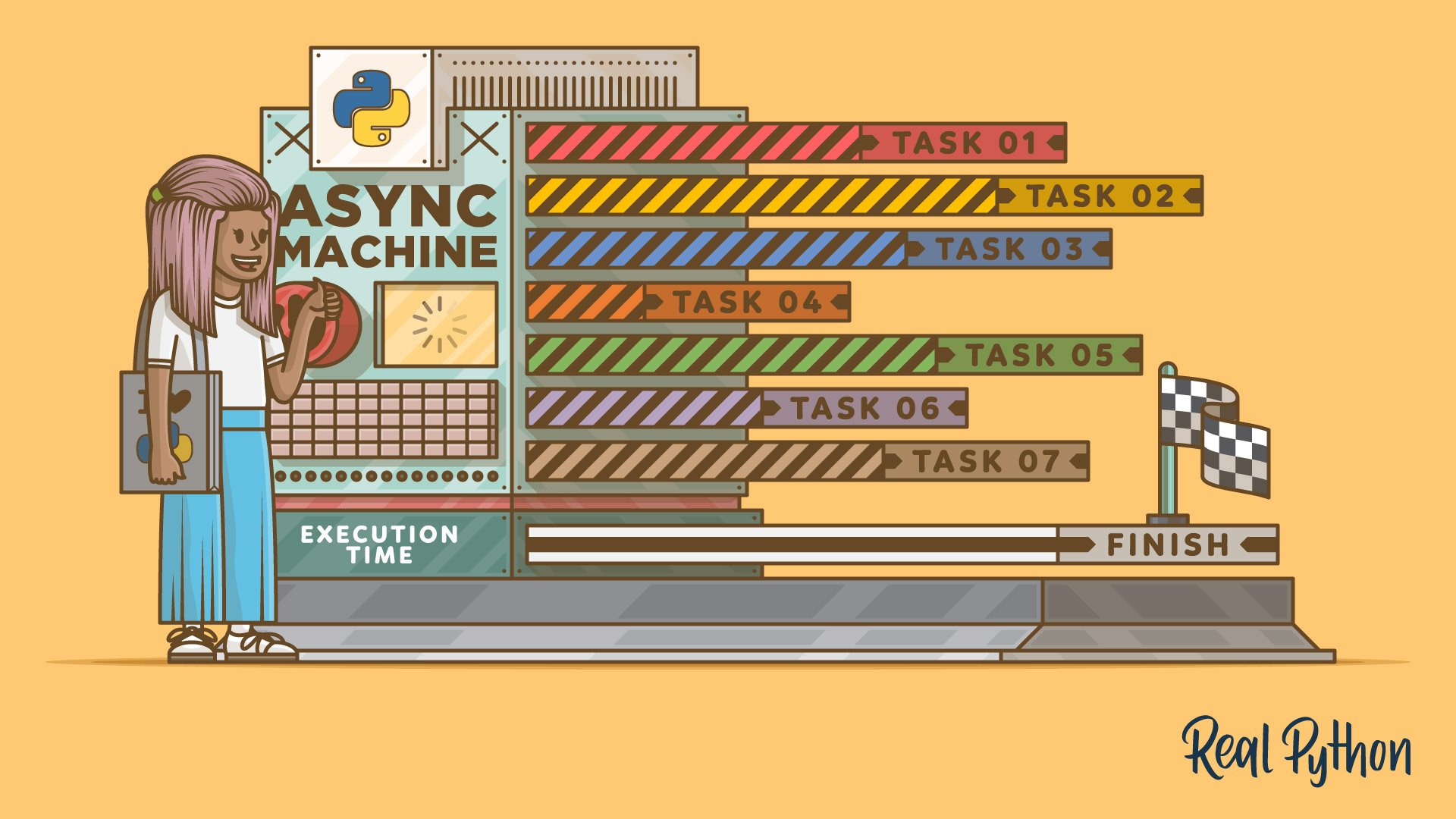Getting Started With Async Features in Python Quiz
Interactive Quiz ⋅ 7 Questions
By Martin Breuss
In this quiz, you’ll test your understanding of Asynchronous Programming in Python.
By working through this quiz, you’ll revisit the concepts of synchronous and asynchronous programs, why you might want to write an asynchronous program, and how to use Python async features.
The quiz contains 7 questions and there is no time limit. You’ll get 1 point for each correct answer. At the end of the quiz, you’ll receive a total score. The maximum score is 100%. Good luck!
Related Resources
Tutorial
Getting Started With Async Features in Python
This step-by-step tutorial gives you the tools you need to start making asynchronous programming techniques a part of your repertoire. You'll learn how to use Python async features to take advantage of IO processes and free up your CPU.
